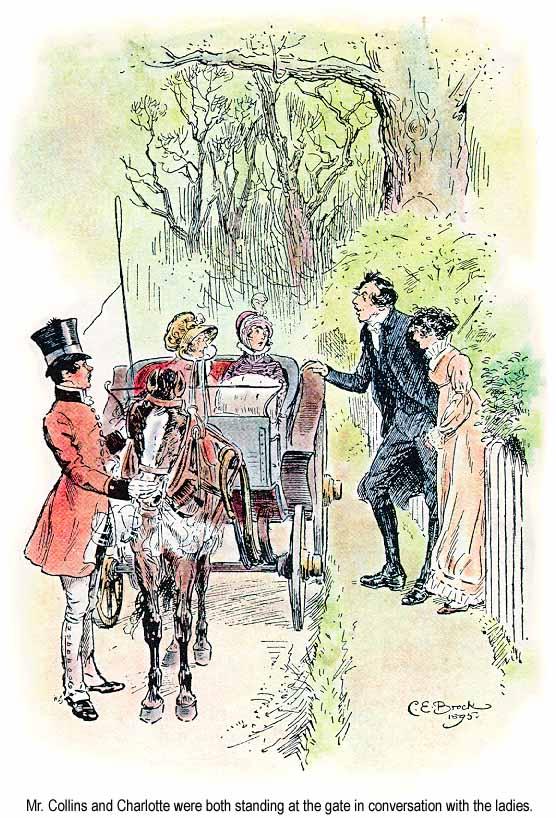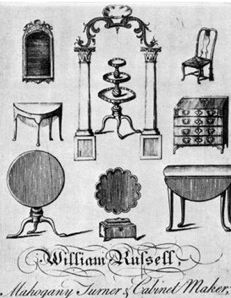Pride and Prejudice Revisited

Is it coincidental that PBS chose, of all the six Jane Austen adaptations, to air Pride and Prejudice the Sunday before Valentine’s Day?
I think they must have strategically placed it there, knowing that Pride and Prejudice is one of the most-loved books in literature, as the results in recent polls have shown. They must have known that Pride and Prejudice is ranked the third most reread books in Britain, and first in a poll on books that people in the British nation can’t live without. Other surveys reveal similar results. In a 2003 BBC poll, Pride and Prejudice ranked second as UK’s favourite book. In 2007, it ranked first. Only in Britain, you might say…but it seems like this is a phenomenon across countries. In Australia, "Austenmania" and "Janespotting" are the common terms to describe this unprecedented occurrence since the mid 1990’s. The Pride and Prejudice miniseries (1995) broke TV ratings, books and sales records.
Jane Austen takes an international stance as it goes multicultural. In Bride and Prejudice (2004), the best-loved Austen novel received a dashing Bollywood makeover. Which country doesn’t have its own class system and prejudice? The movie has also put Aishwarya Rai on the world map. Most recently, Venezuelan director Fina Torres is getting ready to film Sense and Sensibilidad, with screenplay by Mexican Luis Alfaro. Locations of filming will be in Mexico and East L.A., and to be released at the end of 2008. If Jane is around she would be much gratified and amused to see her books gaining such a multi-cultural following.
In the cyberworld, as recent as this past week, Project Gutenberg ranks Jane Austen as the third most downloaded author in the past 30 days after Mark Twain and Charles Dickens, while Pride and Prejudice is the most downloaded Austen books. But of course, statistics are irrelevant when it comes to matter of the heart.
We who love Austen’s works and, in particular, Pride and Prejudice, will continue to reread the book and rewatch this TV miniseries regardless of what the polls show. Different people might find different reasons for its appeal. But I, for one, feel that Austen has created through Elizabeth Bennet and Fitzwilliam Darcy the ideal (note: not perfect) woman and the ideal man. I see in them the essential ingredients of relationships, with oneself, and with others: respect, compassion, kindness, generosity, hope, and grace, but above all, the willingness to change and be transformed for the better. I’m much grounded to expect perfection in the human world, but through Austen’s depiction I can cherish and admire the ideal. With our world unfolding as it is, cherishing the ideal could well be the key to helping us build a more beautiful tomorrow.
Favourite Scenes

The second instalment of Pride and Prejudice aired on PBS carries some of my favourite scenes in the whole miniseries. The ‘wet shirt’ episode, the favourite of many, is naturally one of them. Thousands have already talked about it, but allow me to add one small voice here. I find the surprise and embarrassing encounter of Elizabeth with the dripping wet Darcy to be an ingenious creation by Andrew Davis, an imaginary addition easily forgiven by many Jane Austen purists, I suppose.
My reason for adoring this Pride and Prejudice scene can be summed up in one word: vulnerability. Both are caught unprepared and their vulnerability makes them equal. The inhibition of Elizabeth’s fondness of the place and her bewilderment of Darcy’s character based on the housekeeper’s compliments are well matched by Darcy’s eagerness to make a good impression but alas, while being caught in the most uncouth manner. Both clumsily and comically try to regain composure and maintain some form of civility. In the spontaneity of the moment, pride is laid aside and prejudice banished. Darcy, stripped of his usual formal attire, presents his dripping and humble self in the most unguarded manner. Colin Firth has vividly shown us that genuine and dishevelled appearances can be utterly appealing.
Another favourite scene of mine comes shortly after this chance encounter. As Elizabeth is driven away in the open carriage, she looks back at Darcy in a distance, wearing the fulfilled and satisfied smile on her face, while the camera, from her point of view, captures the handsomely poised Darcy seeing her off, his tall and slender physique growing smaller and smaller in the distance as the carriage is being pulled slowly away…how much tenderness can a camera shot elicit? But before this beautiful departure at Pemberley, there is the duel of words. The scene I like most in this Part 2 of Pride and Prejudice is probably the first marriage proposal in Hunsford parsonage.
Darcy’s words have but achieved one function: confirming every single prejudice Elizabeth might have held towards him.
Through Elizabeth, Jane Austen has eloquently delivered her social commentary on the female predicament of her time. While love can be the most attractive reason for marriage for idealistic Lizzy, her better, rational self challenges the form, the motive, and the consequence of love.
Would she be satisfied with the kind of love that is condescending, unequally bestowed, that is based on feelings ‘despite of’ and not admiration ‘because of’? Austen has articulated her critique on marrying for financial gains, even for the common good of securing the future of one’s whole family. A condescending relationship, despite the appearance of fondness and love, does not warrant the sacrifice of one’s dignity and value. Elizabeth has demonstrated clearly she has a choice, and she exercises her freedom to reject despite of the lure of wealth, status, and security. Just this scene is reason enough for me to admire Jane Austen.
Ideals Universally Acknowledged
I have watched this miniseries countless times, but I still wanted to see it again... the finale of Pride and Prejudice (1995) on PBS’s Masterpiece. I knew I was partaking in a communal experience shared by kindred spirits across North America. Every time I watch it, I glean some new insights, and I cherish the story all over again. While Elizabeth and Darcy have virtues of their own, they have character flaws that if remain unchecked and unaltered, could well lead to a downfall like a tragic hero.
Elizabeth, biased by her confidence in her own judgment, initially found Darcy to be utterly despicable. And Darcy, acting according to his own hubris, only fuels the very prejudice held by the one he admires. In circumstances like this, the ideal scenario is for the characters to change, to transform themselves into a better person in order to earn requited love. And that is exactly what Austen has done, and I think it is one of the main reasons why we love her story. She has put together two flawed characters and placed them in an ideal scenario wherein they strive to improve themselves, and turned into a better person for the sake of the other…Well, maybe more on the part of Darcy, and we love him for that.
I like the title Pride and Prejudice more than Jane’s original First Impressions. It gives a bit more depth and sets readers out searching for the universal shortfall in us all. Often our own prejudgment and overconfidence in our myopic view confine us squarely inside the box, unable to see the world beyond. The portrayal of such transformation is vividly and sensitively acted in the miniseries. Colin Firth and Jennifer Ehle effectively help us envision such an ideal scenario, satisfying our quest for the good, the wholesome, universal ideal of love hidden in us all. Kudos to Andrew Davis. I think he has written an ideal screen adaptation of Austen’s novel. Because of its loyalty to the original and still keeping the integrity of the work even when Davis presents to us imagined visions arise from his own interpretation, I believe this miniseries is the definitive version of Pride and Prejudice on screen.

The Gaze
Again, I have several favourite scenes. Which heart will not melt by that burning gaze of Darcy ardently holding Elizabeth as she rescues his disturbed sister in Pemberley upon the malicious mention of the name Wickham by Ms. Bingley? (BTW, this is Andrew Davis’ favourite scene in all of his Austen adaptations!) Who will not rejoice in Elizabeth’s assertive and eloquent rebuttal against the diatribe of Lady Catherine de Bourgh, and her calm refusal to promise never to enter into any engagement with Darcy? Whose heart will not stir as a restrained yet passionate Darcy extends his second marriage proposal to Elizabeth? Elizabeth has demonstrated time and again that she has the autonomy to make her own choices, yet Austen has also poignantly shown us that while Elizabeth can choose who to love, she cannot force the other to choose her, especially after her family’s reputation has been ruined by Lydia’s elopement.
Darcy learns this lesson much earlier, in a most traumatic and humiliating manner, as he realises that wealth and social standing, or even his own declaration of love cannot force another person to accept him. Here lies the paradox of love, one can choose who to love but cannot demand requited love. Choosing one’s love manifests the autonomy of self, but having to earn and wait for the other to choose you is a most humbling discipline. Maybe the ideal thing to do in such a circumstance is just to become a lovable person. That could well create the best chance of gaining love. In the end, it is heart-warming to see both Darcy and Elizabeth, each having decided on each other, still quietly pines and waits for the other to declare his/her choice. A sense of uncertainty is what keeps us humble and instills in us the virtue of hope.
“It taught me to hope as I had scarcely ever allowed myself to hope before.”
Knowing our innermost yearning, Jane Austen brings her characters together in the most humbling circumstance, with their mutual admission of wrongs and weaknesses while esteeming the other higher than him/herself, fulfilling the ideal state of love.
“Do not repeat what I said then…I have long been most heartily ashamed of it.” “As a child… I was given good principles, but left to follow them in pride and conceit… and such I might still have been but for you, dearest, loveliest Elizabeth!”
Through such mutual respect and admiration, our beloved author delivers the ideal ending to the love story of two imperfect persons…and sets us up for another round of watching and reading.
Arti reviews movies, books, arts and entertainment on her blog Ripple Effects. She has pleasure in many things, in particular, the work and wit of Jane Austen.



